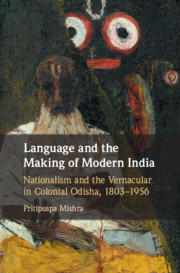Acknowledgments
I have carried the early versions of this book with me as I have moved across the world and made my home in many different localities. And through these journeys, this book has been fed by numerous conversations and friendships. The book began its life as a PhD dissertation at the University of Minnesota. Under Ajay Skaria’s guidance, an incredible mix of kindness and intellectual challenge, I learned to hone in on my central conceptual concerns for this project. Simona Sawhney’s generous mentorship pushed me to find my academic voice. Her insightful yet cryptic questions have often shown me the promise of my own work when I failed to see it myself. I am also indebted to the Qadri Ismail, John Mowwit, Tom Wolfe, Fleur D’Souza, Anindita Mukhopadhyay Dilip Menon, and Barbara Welke for their liberal sharing of their time and expertise.
I have been fortunate to receive funding at critical points in developing, researching, and completing this book. Funding from the American Institute of Indian Studies, the University of Minnesota, and Texas A&M University supported archival research for the book. Funding from Princeton University in the form of a Fung Global Fellowship and the generous research leave from the University of Southampton have allowed me space to write the book.
My research on the history of Odisha took me to a number of archives and libraries. I am deeply grateful to the staff at the Odisha State Archives for their warm welcome and extremely helpful investigative tips that helped me explore the archive. I also received valuable help from the staff of the Madras State Archives, the Nehru Memorial Museum, the National Archives, Utkal Sahitya Samaj Library, Kedarnath Gabesana Sansad, Odisha State Museum, and the British Library.
Over the years, friends and colleagues have had an enormous impact on the final shape of the book. At Minnesota, N’Jai-An Patters, Papori Bora, Emily Rook-Koepsel, Aditi Chandra, Julietta Singh, Sarah Crabtree, Katie Levin, and Nadim Asrar sustained the early development of this project with great friendships and intellectual camaraderie. At College Station, Lisa Ramos, Molly Warsh, Jason Parker, Rebecca Schloss, Leah Devun, Jayson Brewster-Jones, and Olga Dror helped me tease out the new current shape of the book. At Princeton, I was fortunate to be involved in intense and insightful discussions about language and authority with Michael Gordin, Brigitte Rath, Ying Ying Tan, Helder Descutter, David Kiwawa, Beate Witzler, Adam Clulow, Rosina Lozano, and Michael Laffan. This book bears many imprints of their impact on my thinking. At Southampton, I have had brilliant colleagues, including Ian Talbot, Stephanie Jones, Jesse Ransley, Eleanor Jones, John McAleer, Joan Tumblety, Nick Karn, Christer Petley, David Brown, Justine Puzzo, Sarah Hayden, and Sophie Holmes Elliot, who have all provided a rigorous intellectual climate for the final development of the book. Conversations with colleagues in India, including Sowmya Dechamma, Asha Sarangi, Kailashchandra Das, and Veena Naregal, have helped me clarify the political stakes of my work. I would like to thank Lucy Rhymer of Cambridge University Press for her expert shepherding of this manuscript into the finished book. I am grateful to the anonymous readers for their insightful and productive engagement with my work.
Finally, I have been blessed with the support of a wonderful family. My parents, Amarnath and Puspamitra Mishra, have been central to the research enterprise involved in this project. They have enthusiastically accompanied me in my meandering journey through many Indian archives. As I continued to read and analyse Oriya documents, my parents exposed me to the complex texture of nineteenth-century Oriya prose. Irrespective of its outcome, this project has enabled me to catch a glimpse into the intellectual lives of my parents. It is not often that children have that privilege. I thank them for allowing me in. Swapnapushpa Mishra and Deepak Konale have provided much needed motivation and perspective to an otherwise obsessive process. The late K. G. S Mani, R. Asha, and G. Nithya entered my life at a crucial point of this project and joined the rest of my family in cheering me on. I thank them for their unquestioning acceptance and love. This book would not have been possible without the love and unwavering support from Bharath and Riya as they have shared me with this project over the last few years.



